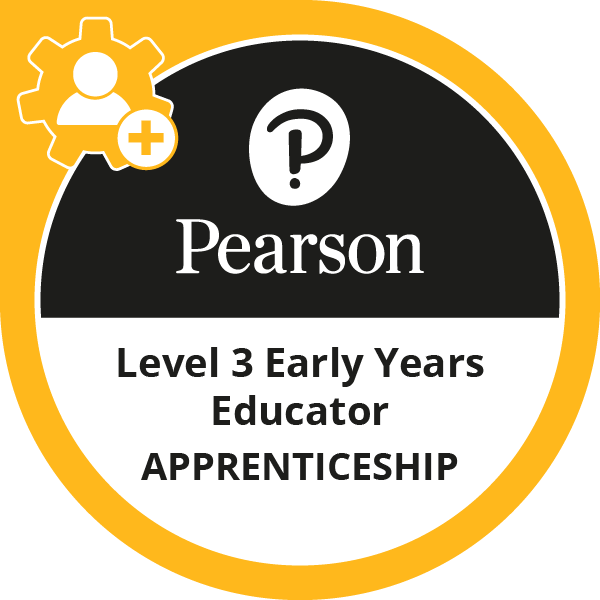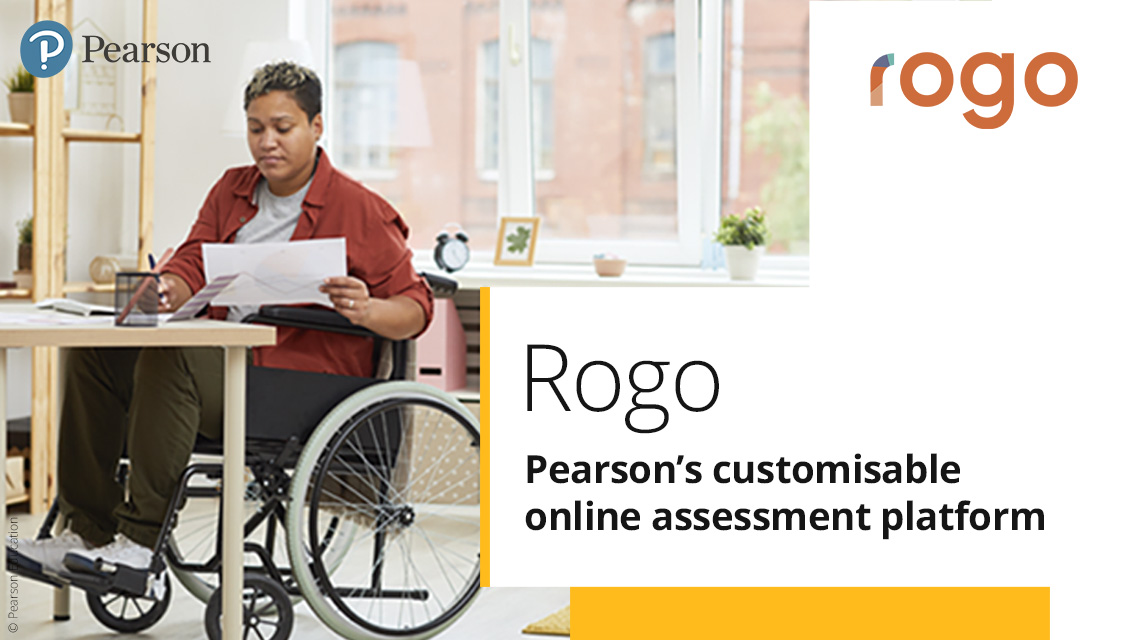Apprentices who achieve their End-point Assessment for this standard will be invited to claim their Credly digital badge.
Apprenticeship Standards Early Years Educator (L3)
About this role
As an Early Years Educator, or similar role such as nursery nurse or childminder, you will work as a highly trained professional, who plays a key role in ensuring that young children learn and develop well and are kept healthy and safe.
You will be working in a range of settings, including full day-care, children’s centres, pre-schools, reception classes and as childminders, either on your own or supervising others to deliver the Early Years Foundation Stage (EYFS) requirements set by Government for the learning, development and care of children from birth to five years old.
- Plan and supervise child-initiated and adult-led activities, which are based around the needs and interests of each individual child
- Support children to develop numeracy and language skills through games and play
- Take key-person responsibility to help ensure each child feels safe and secure
- Observe each child and shape their learning experience to reflect their observations
- Meet the care needs of the individual child, such as feeding, changing nappies and administration of medicine
- Work in partnership with other colleagues, parents and/or carers or other professionals to meet the individual needs of each child
Apprentice support videos
See our latest support videos in the EPA section further down this page.
On this page
On-programme
We provide a clear learning programme to take apprentices from entry through to the gateway for end-point assessment.
You can use our on-programme offer, regardless of whether you are using Pearson as your end-point assessment provider.
Qualifications
Apprentices must achieve a minimum of Level 2 English and Level 2 maths
Pearson Edexcel Level 3 Diploma in Children’s Learning and Development (Early Years Educator
Alternatively apprentices could do one of the Level 3 Early Years Educator qualification on the DfE list of approved EYE qualifications
Apprentices must also successfully complete the Level 3 Award in Paediatric First Aid. (RQF) or Level 3 Award in Emergency Paediatric First Aid (RQF) Or complete a first aid course delivered by one of the organisations as per the EYFS requirements. They can do:
Pearson BTEC Level 3 Award in Paediatric First Aid 603/5174/3
Apprentices without Level 2 English and maths will need to achieve this level prior to taking their end-point assessment. For those with an education, health and care plan or a legacy statement, the apprenticeships English and maths minimum requirements are Entry Level 3, and the British Sign Language qualification is an alternative to English qualifications for apprentices for whom this is their primary language.
As both a vocational and academic awarding organisation, we can offer a wide range of English and maths qualifications in line with your standards’ requirements from Functional Skills through to GCSEs.
Learning resources
An ideal course companion to support apprentices throughout their on-programme learning for Team Leader/Supervisor Level 3.
Get all the guidance and support that apprentices need to prepare for their EPA.
We have a wide range of resources and useful tools to complement your programme, including assessment tools, podcasts and training events.
End-point assessment
As an ESFA-approved Assessment Organisation, we provide a full range of assessment services, resources and support from our experienced EPA team to equip you and your learners with the diverse requirements of the apprenticeship standards.
You can use Pearson as your end-point assessment organisation, regardless of whether you choose to use our on-programme offer or not.
Specifications
The end-point assessment is made up of two components:
- Professional discussion underpinned by a portfolio of evidence
- Observation with questioning
The end-point assessment is made up of two components:
- Knowledge test
- Professional discussion underpinned by a portfolio
Resources
Our range of EPA resources such as EPA specification, additional resources document and practice knowledge test are designed to enhance learners’ knowledge and/or hone essential skills required.
They are available to our customers who have signed up to Pearson EPA and include information on:
- Structure
- Grading
- Gateway requirements
- Assessment content
- Evidence requirement for each component
We have designed a step-by-step guide, with signposts to our key supporting information, resources and services available at every stage of the process.






